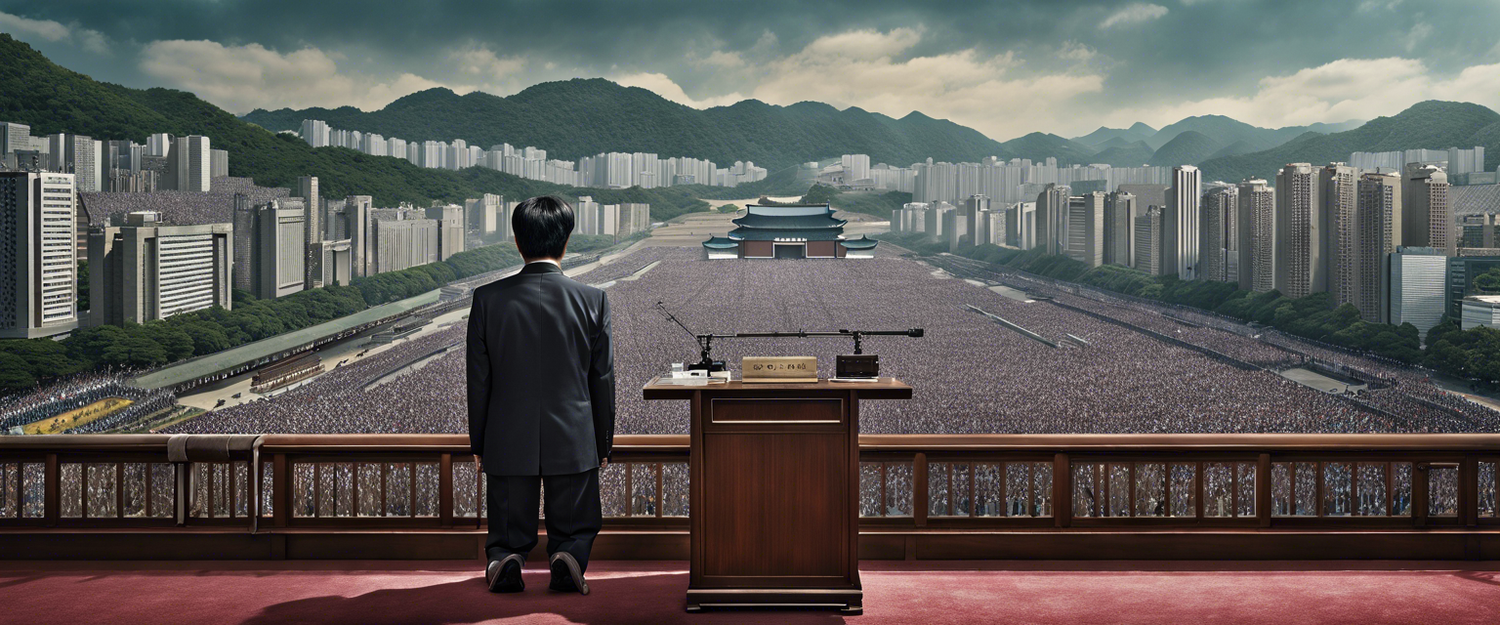Political Tensions Rise in South Korea Amid Emergency Martial Law Announcement
In a dramatic turn of events, President Yoon Suk-yeol of South Korea declared 'emergency martial law' late last night, igniting fierce controversy and opposition across the nation. This unexpected declaration is emblematic of the escalating political tensions that threaten to unravel the fabric of the country's political stability.
Opposition Party Reacts Swiftly
The main opposition party, the Democratic Party (DP), quickly responded by gathering its members in the National Assembly. This assembly underscores the deepening political divisions within South Korea where discord among political factions has become increasingly prevalent.
Market Reactions: Korean Won Takes a Hit
In light of the unexpected political unrest, financial markets have reacted swiftly. The South Korean won reversed its earlier gains against the US dollar, with the exchange rate climbing higher at a notable 1.2% increase. Such fluctuations reflect investor anxiety regarding the uncertain political landscape and its implications for economic stability.
Disagreement Among Ruling Party Members
Adding to the turmoil, Han Dong-hoon, a prominent leader within the ruling party, publicly voiced his discontent with the president's decision on martial law. Calling the move a "mistake," Han has pledged to take action against its enforcement. This notable dissent from within Yoon's own ranks highlights the contentious nature of the martial law decision and its repercussions on the unified front of the ruling party.
Implications for South Korea's Political Stability
The imposition of emergency martial law marks a significant turning point in South Korea's political climate, raising critical questions about the future of governance and civil liberties in the nation. The internal rift within the ruling party could hinder the government's ability to implement crucial policies amidst rising dissent.
The situation remains fluid, and citizens are left awaiting further developments with bated breath as political leaders navigate this unprecedented crisis.
Conclusion
South Korea is at a crossroads, grappling with political turmoil that could shape its future. As parties clash and markets react to the evolving situation, the impact of President Yoon's decisions on national stability is yet to be fully realized. Ongoing monitoring of the political landscape will be vital for understanding the implications of these developments.



Оставить комментарий
Все комментарии перед публикацией проверяются.
Этот веб-сайт защищается hCaptcha. Применяются Политика конфиденциальности и Условия использования hCaptcha.